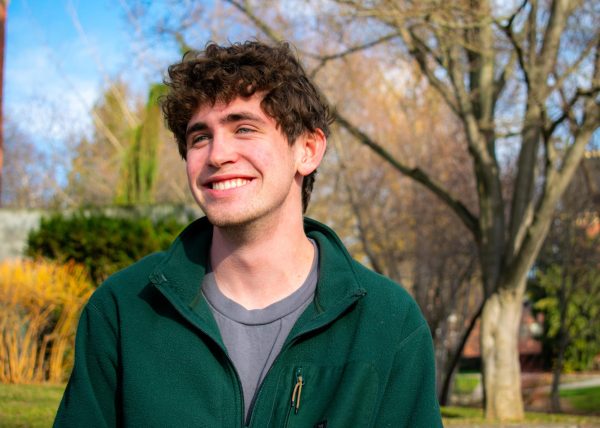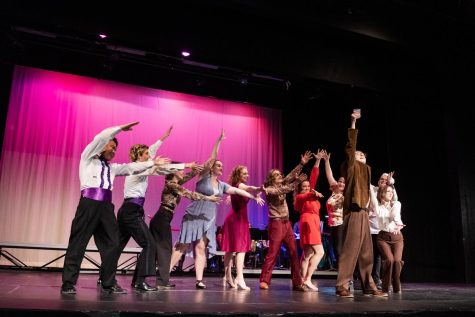Whitman theater department welcomes Aaron Chvatal as new costume shop director, readjusts to a season of live productions
September 16, 2021
As the fall semester begins, bringing with it the long-absent promise of live community performance, the Whitman theater department welcomes Aaron Chvatal as its new Costume Shop Director and Visiting Assistant Professor of Costume Design.
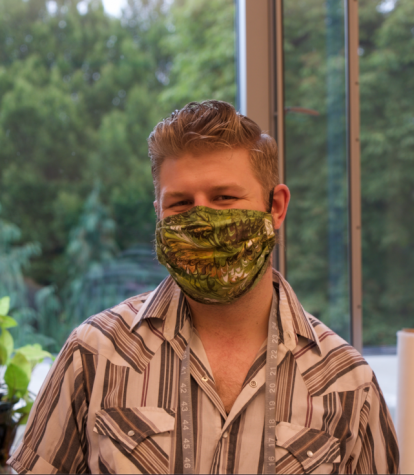
Previously, Chvatal has managed costume shops for various festivals and opera programs throughout the country, most notably the Brevard Music Center, the Seagle Festival and the Castleton Opera Festival. These positions have served as venues for Chvatal to mentor younger costume designers, who may not have the benefit of professional training, and help them apply their skills in more rigorous environments.
For Chvatal, the most rewarding aspect of his work is seeing the sparkle in a student’s eyes when they are finally able to grasp a complicated technique.
“I feel like we are really visual people … so talking through something can make a certain level of sense, but it doesn’t really click until they see it and they touch it and they’ve done that step themselves on the sewing machine,” Chvatal said.
Chvatal is eager to continue passing down techniques to the students working in Whitman’s costume shop, who have responded well to the transition in leadership. Junior Chloe Williams, who first began working for the costume shop in fall 2019, says she appreciates how he is able to balance challenging his students with offering meaningful and thorough guidance. She has found herself able to focus on more long-term projects for the department’s upcoming productions, in contrast to the smaller, more varied tasks she tended to be assigned in the past.
“Everyone runs the shop a little bit differently,” Williams said. “[Aaron’s] very focused on having us get experience sewing costumes from start to finish in a very thorough way . . . I’m basically just working on one project for the whole show.”
Now that relaxed COVID-19 restrictions have given the theater department the freedom to once again put on live productions, Chvatal, Williams and the rest of the department are looking forward to re-establishing the relationship between the performers and the community with their first performance of the semester, The Revolutionists. Chvatal says he feels as though the pandemic has forced theater to embrace new techniques and new technologies in order to create a new art form suitable to a world that no longer allowed an audience in the room.
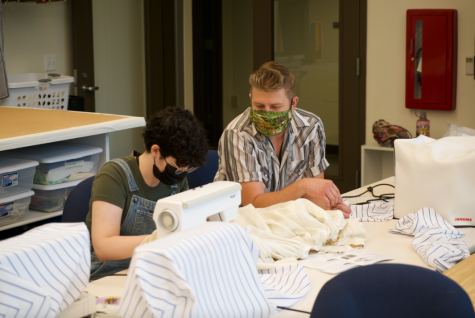
“It’s been really difficult to be in the arts, because we are part of an art form that requires an audience,” Chvatal said. “But I think it gave us a moment to re-evaluate what theater is and how we interact with and engage with audiences.”
Though according to Theater Department Chair Dr. Laura Hope, because the theater department was unable to stage shows for nearly three full semesters, transitioning back into a full season has posed some distinct challenges.
“That’s three semesters of new and incoming students that don’t really know the department, that haven’t really had the training that they would normally have had going into the season,” Hope said.
Williams has seen a similar phenomenon occur in the costume shop, suddenly finding herself among the most experienced members of the team despite a significant gap in her time with the department.
“It feels like making up for lost time,” Williams said. “Normally, if there had been no pandemic, you would have had seniors that had gone through the shop for four years and knew things really well.”
As a result, in preparing for the upcoming season, the department has had to take stock of how much accumulated experience its students and faculty have with running and managing live performances. The lingering effects of last spring’s Financial Sustainability Review have left the theater with drastically reduced faculty positions, and Chvatal’s position in particular is listed as a visiting position despite its necessity within the department—something Dr. Hope hopes will soon change.
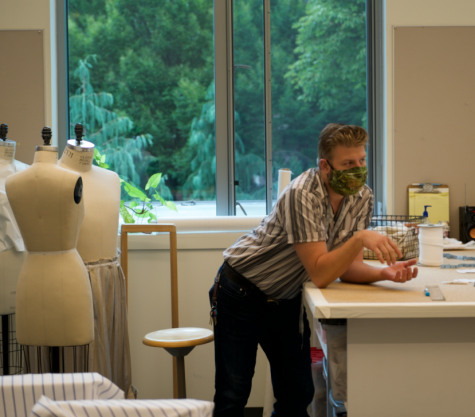
“Those are imagined as temporary contracts, but you have to have a costume shop director,” Hope said. “So we are hoping that eventually we can get that moved … to a more permanent sort of deal. But that’s out of our hands in a lot of ways.”
Despite these challenges, Chvatal is excited to see a continuation of the steady community support the theater has always maintained.





